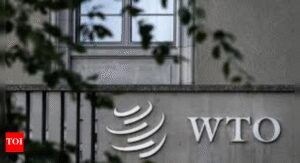When polyester was invented, the goal was to create a durable and resistant fabric that could retain its colour and shape — without wrinkles. Almost 85 years later, polyester is everywhere.
According to standards body Textile Exchange, polyester is the clothing industry’s most popular fabric. About 49% of clothing contains the synthetic fabric.
Unfortunately, polyester is not biodegradable. Only 1% of clothes are recycled into new garments, meaning about 92 million tons of textile is wasted every year.
That figure is expected to exceed 134 million by the end of the decade, according to a 2024 report from the Waste and Resources Action Programme.
American business tech leader IBM and French engineering company Technip Energies have partnered up to help solve this problem. Together, they created Reju, a textile-to-textile recycling operation focused on polyester.
“What’s unique about Reju is our ability to take what is one of the biggest problems in society today, which is post-consumer waste, textile waste, and take the polyester out of the waste,” Reju CEO Patrik Frisk told CNBC’s Converge.
“Our ability is to take the polyester out and then depolymerize the polyester,” he added.
The approach is based on IBM’s VolCat technology. Short for volatile catalyst, the process uses a mix of ethylene glycol and heat to dissolve PET (polyethylene terephthalate) into molecules. The molecules can then be arranged together again, with the aim of creating new polyester.
Reju opened its first demonstration plant, Regeneration Hub Zero, in Frankfurt, Germany in September 2024.
Funded by Technip Energies with an intitial investment of 100 million euros, the hub has the capacity to produce 1,000 tons per year of the brand’s proprietary product, Reju Polyester.
Watch the video above to learn more about how these companies are working together, as well as an inside look at Regeneration Hub Zero.














